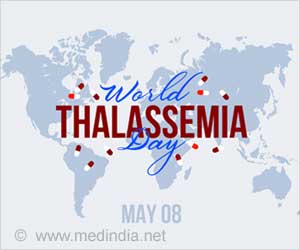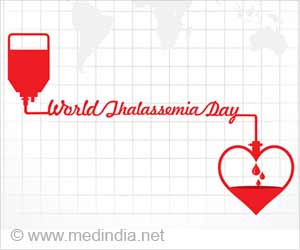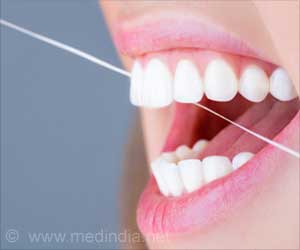Thalassemia patients receive support from DKMS-BMST, which has been at the forefront of organizing support for them by assisting in finding compatible donors.
- Thalassemia is an incapacitating genetic blood disorder that lowers the blood's oxygen-carrying capacity
- The Indian Government has recognized Thalassemia as a disability since 2016
- As December 3 is celebrated as the International Day of Persons with Disabilities the DKMS has initiated DKMS-BMST thalassemia program to organize thalassemia camps and identify appropriate donors for stem cell transplant
Living with Thalassemia
Thalassemia is an incapacitating disorder. It causes chronic anemia and calls for frequent blood transfusions. The patient finds it difficult to lead a normal life because it is also linked to various incapacitating co-morbidities such as organ damage, bone deterioration, and heart issues.Treatment of Thalassemia
Human leukocyte antigens (HLA)-matched blood stem cells from related or unrelated donors can be used in a stem cell transplant to treat thalassemia. Dr. Esha Kaul, Associate Director - Medical Oncology (Hematology, BMT), Max Super Specialty Hospital, Delhi, informs, “In Thalassemia, the body cannot make enough hemoglobin or makes defective red blood cells (RBC), which leads to severe anemia which further leads to lethargy, loss of appetite, disfigurement of facial bones, enlarged liver and spleen. Thalassemia is a progressive condition with no cure for adults, and the patient is dependent on blood transfusions for life, but the condition varies from patient to patient. The general health condition of thalassemia patients remains poor, with associated health conditions such as delayed or retarded growth, endocrine complications, bone disease, heart disease, liver failure, etc., making the person unable to perform natural day-to-day activity properly.”Is Thalassemia a Diability
In accordance with the Rights of People with Disability Bill, which was approved by the Indian Parliament in December 2016, the government of India recognized thalassemia and other uncommon blood disorders as disabilities in 2016. Patrick Paul, CEO DKMS BMST Foundation India said, “DKMS-BMST has been at the forefront of organizing support to thalassemia patients by helping them find matching donors from within the patient’s family or unrelated donors through the global database of potential donors. To support the cause DKMS has initiated DKMS-BMST thalassemia program. Under this programme, DKMS-BMST collaborates with NGOs and transplantation clinics to organize thalassemia camps. During the camps, pediatric thalassemia patients and their family members give buccal swab samples for HLA typing. The swab samples are then sent to DKMS laboratory in Germany and clinical matching reports are provided. DKMS also helps where there are no matching stem cell donors for the patients in their families by finding an unrelated donor in the international stem cell donor database. Till now DKMS-BMST has tied up with 18 partners, which include 11 Transplant centers, 1 donor registry and 6 NGOs in India.” DKMS-BMST and its Thalassemia partners held Thalassemia camps in 2022 in states such as Karnataka, Bihar, Rajasthan, Andhra Pradesh, Telangana, Punjab, Maharashtra, Madhya Pradesh, Odisha, Tamil Nadu, Kerala, Chhattisgarh, Goa, and Delhi. They also collected over 4,000 swab samples from patients and their families. Their efforts helped 1288 people with thalassemia.Blood Stem Cell Transplant in Thalassemia
“Matching of human leukocyte antigens (HLA) between the patient and donor is required for a successful blood stem cell transplant. But in India, only 30% of the patients are able to find a matching donor within their own family and the rest 70% are dependent on an unrelated donor. However, Indians only account for 0.04% of total listed unrelated donors globally due to the lack of awareness and prevailing myths around the stem cell donation process,” added Patrick.International Day of Persons with Disabilities
The UN has declared December 3rd to be the International Day of Persons with Disabilities, with the mission of promoting knowledge of and support for the rights, dignity, and general welfare of people with disabilities. A stem cell transplant can cure thalassemia, but there is only a one-in-a-million chance that the patient will find a match, and Indian patients often need an Indian tissue match. Young Indians need to register as potential donors and come forward more often because blood stem cell donation is an entirely safe procedure.Source-Medindia
















